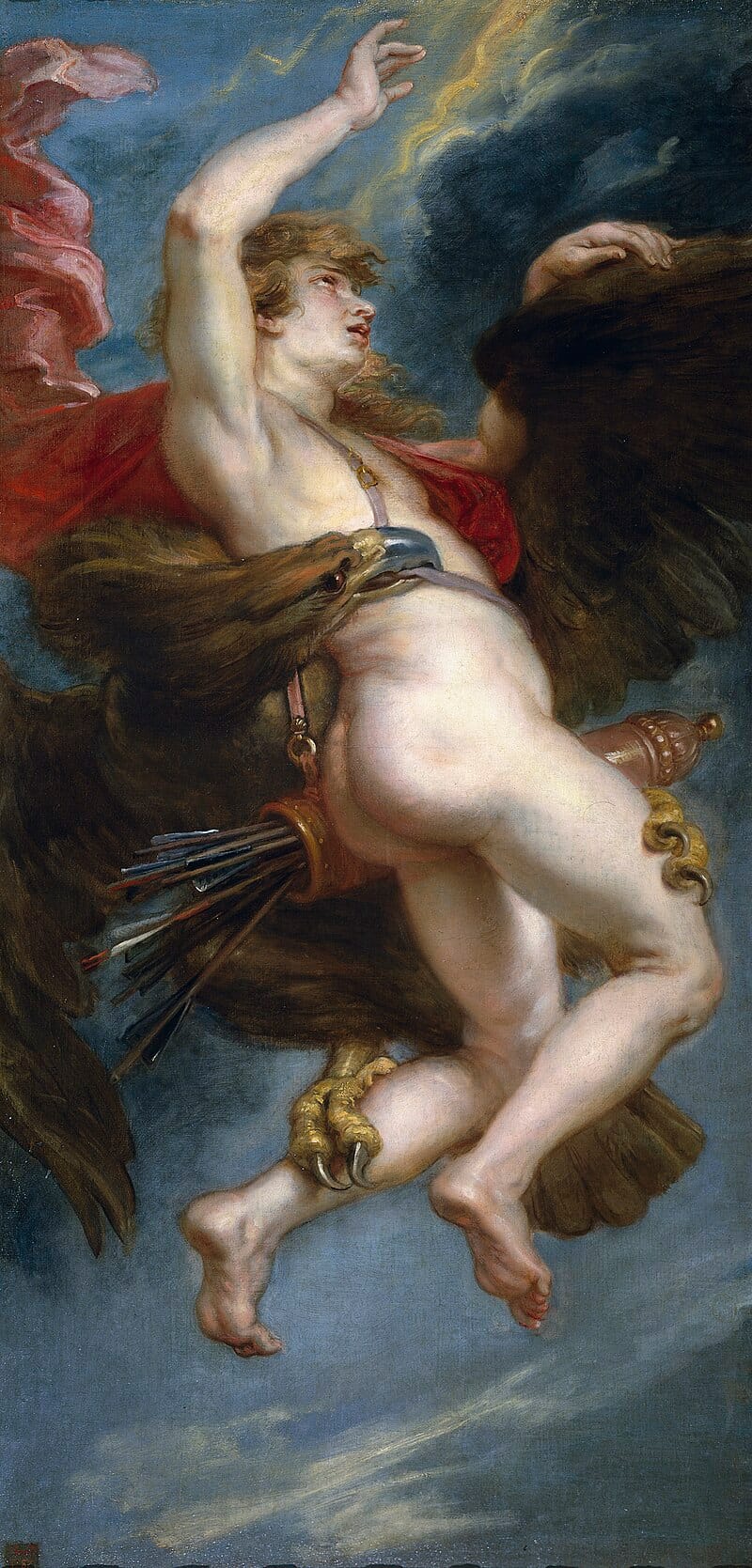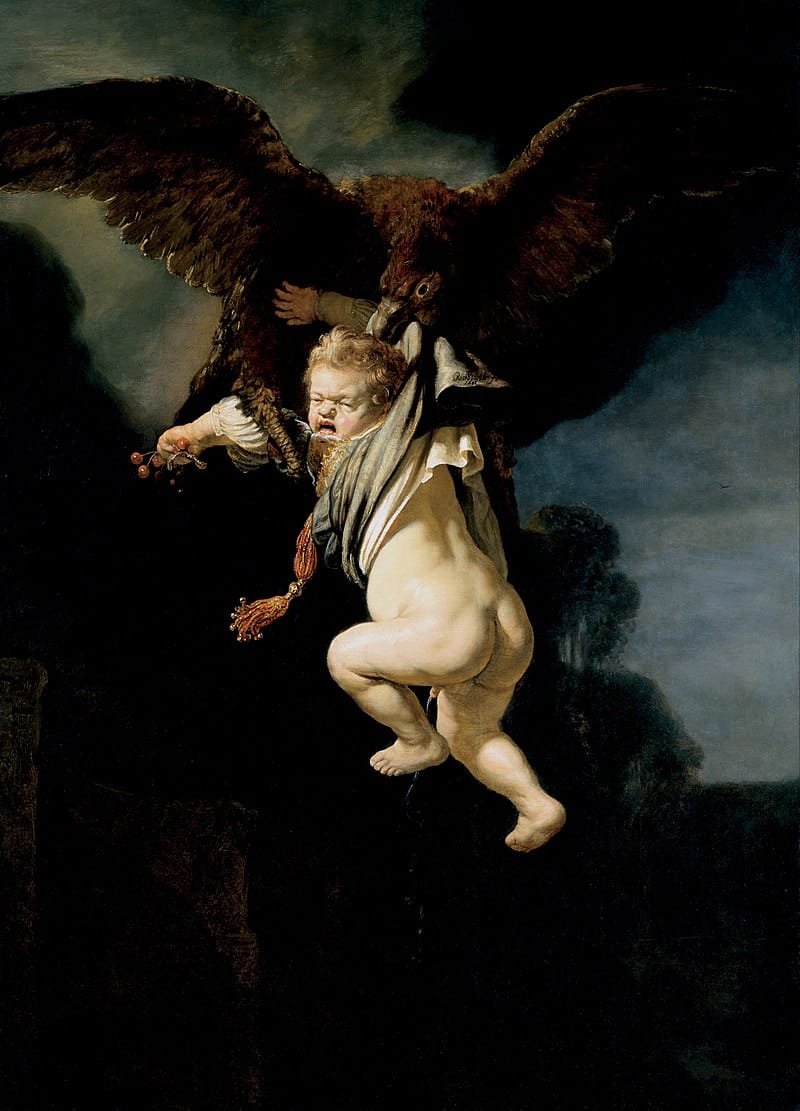Goethe and 'The Rape of Ganymede'

It is difficult to miss the homosexual theme in the painting below, The Rape of Ganymede by Rubens (1611), where the eagle is Zeus, but most major painters and writers treated the theme at some point in their career. So what, then, was on Goethe's mind when he wrote a poem about it? Over the years there have been allegations that Goethe was homosexual or bisexual but the evidence is unpersuasive (and the same things have been said about Schubert, who put Goethe’s poems to music).

Some find a gay sensibility in Goethe's poems like Ganymede (from 1789) and the earlier Der Erlkönig (from 1782). The latter poem tells the story of a father galloping home carrying his young son who is dying. The wraith-like Erlking appears only to the son, beckoning him to join him, an omen of death. The Erlking speaks these lines: “You lovely child, come, go with me!/Many a beautiful game I'll play with you…” “I love you, your beautiful form entices me;/And if you’re not willing, I shall use force.” (c.f. The Headless Horseman)
Schubert first adapted Der Erlkönig in 1815, when he was 18, revising it several times thereafter, and for some it is his most beloved work.
Below is Rembrandt's decidedly un-erotic The Abduction of Ganymede (1635), sometimes translated into English as The Rape of Ganymede. What was his patron thinking! What are the English speaking translators and art galleries thinking? A few art critics try to explain all this away - it's not homosexual, they say; it's in a relatively new Protestant Baroque interpretation of Ganymede as a beloved child "abducted from life too soon"....

An interesting side note: in 1910, Sigmund Freud, in Leonardo da Vinci, A Memory of His Childhood, described a memory Leonardo had of having been attacked as a baby by a bird of prey, concluding from this that Leonardo was a latent homosexual:
It seems that it had been destined before that I should occupy myself so thoroughly with the vulture, for it comes to my mind as a very early memory, when I was still in the cradle, a vulture came down to me, he opened my mouth with his tail and struck me a few times with his tail against my lips. - Codex Atlanticus
This argument hasn't fared well.
